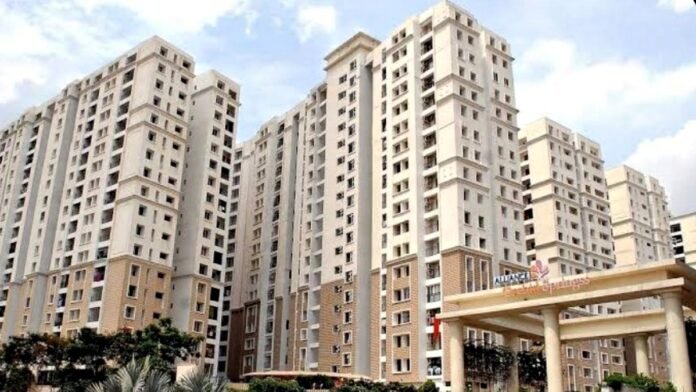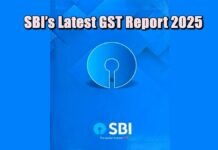
Key Highlights
- The government has imposed an 18% GST on apartment maintenance charges exceeding ₹7,500 per month per member or a society’s annual turnover crossing ₹20 lakh.
- This rule affects millions of apartment residents in urban areas like Bengaluru, Mysuru, and Mangaluru.
- Compliance requires housing societies to register under GST and file returns twice a month, adding to administrative costs.
- Societies can claim Input Tax Credit (ITC) to offset GST paid on services used for maintenance.
New Delhi: The imposition of 18% GST on apartment maintenance charges has sparked debates among residents and housing societies across India. This new regulation applies to societies collecting more than ₹7,500 per month per member or having an annual turnover exceeding ₹20 lakh. With urban living increasingly centered around apartment complexes, this change is expected to impact millions of households.
Who Will Be Affected?
The rule primarily targets larger housing societies and gated communities:
- Thresholds for Applicability:
- GST applies if monthly maintenance charges exceed ₹7,500 per member.
- Societies with annual collections above ₹20 lakh must register under GST.
- Urban Impact:
- In Bengaluru alone, over 50 lakh people live in apartments, with another 40 lakh across cities like Mysuru, Mangaluru, Hubballi, and Belagavi.
Compliance Requirements
Housing societies falling under the GST bracket face several compliance obligations:
- GST Registration: Societies must register under GST if they meet the thresholds.
- Monthly Returns: Filing returns twice a month—on the 11th and 20th—plus an annual return.
- Administrative Costs: Societies may need to spend ₹1–2 lakh annually on auditors and compliance.
How GST Is Calculated
The GST rate of 18% is levied on the entire maintenance amount if it exceeds ₹7,500 per member. For example:
| Monthly Maintenance Charge | ₹8,500 |
|---|---|
| GST @ 18% | ₹1,530 |
| Total Payable | ₹10,030 |
Input Tax Credit (ITC): A Relief for Societies
Housing societies can claim ITC to offset the GST paid on services used for maintenance activities such as security, cleaning, and repairs. This reduces the overall tax liability and benefits residents indirectly by lowering costs.
Exemptions Under GST
Certain conditions exempt societies from paying GST:
- If monthly maintenance charges are below ₹7,500 per member.
- If the society’s annual turnover is less than ₹20 lakh.
- Smaller residential complexes with fewer than 15 dwelling units are also exempt.
Challenges for Residents
The imposition of GST has raised concerns among residents:
- Increased Costs: Monthly bills will rise significantly for those living in large societies.
- Confusion Over Applicability: Residents are unsure whether their society qualifies for GST registration.
- Administrative Burden: Frequent filing of returns adds complexity for society management committees.
Steps to Verify Applicability
Residents can confirm whether their society falls under the GST bracket by visiting their local Commercial Tax office. For a fee of ₹500, they can obtain an official letter clarifying their status.
Impact on Urban Living
The introduction of GST on apartment maintenance charges is reshaping urban housing dynamics:
- Financial Strain: Increased costs may affect affordability for middle-class families.
- Administrative Complexity: Housing societies must streamline operations to ensure compliance.
- Transparency in Billing: Societies must issue detailed invoices showing GST amounts.
Expert Insights
Chartered accountant Sanjay Dhariwal explains: “While societies can claim ITC to reduce tax liability, the compliance burden is significant. Monthly returns and audits will require professional help.”
Conclusion: Navigating the New Normal
The 18% GST on apartment maintenance charges introduces both challenges and opportunities for housing societies and residents. While it increases financial burdens and administrative complexity, it also encourages transparency and accountability in society management.
Residents must stay informed about their rights and obligations under this new regime. Housing societies should seek professional advice to ensure smooth compliance while leveraging ITC benefits to minimize costs. As urban living evolves, adapting to these changes will be key to maintaining harmony in residential communities.

















































